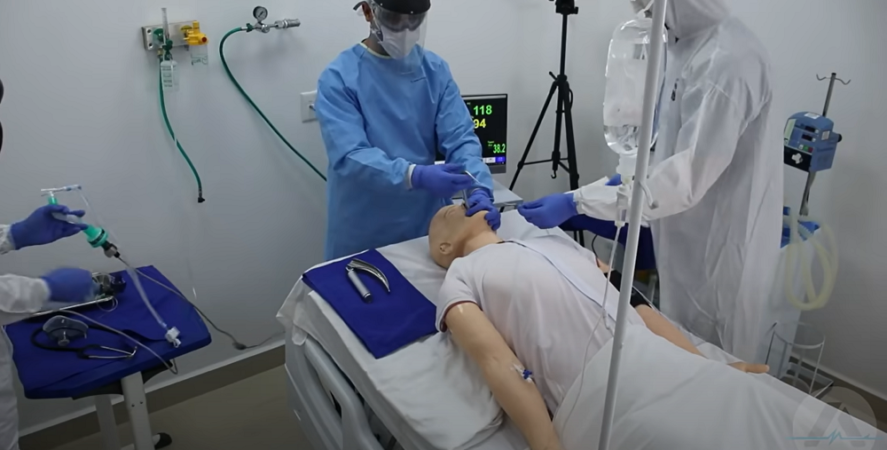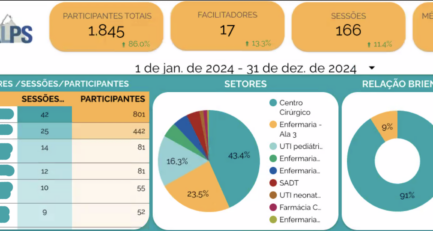
IMEPAC in Araguari, Brazil, an Affiliate of the Center for Medical Simulation (CMS) in Boston, is an innovative regional healthcare and medical training leader known for improving the safety, quality, and education of patients, employees, and students using continuous learning and simulation.
CMS recently spoke with Dr. Henrique Pierotti Arantes, the Medical Course Coordinator at IMEPAC Centro Universitário to learn more about how he and the Center for Realistic Simulation team have responded to the COVID-19 pandemic. Dr. Arantes said that one of the ways has been to develop a simulation rotation for all interns of the medical school. He noted that the rotation was based on SimZones, a system for simulation curriculum development and delivery, that Dr. Arantes, with the assistance of Chris Roussin, PhD, Senior Director, Education Leadership and International Programs at CMS, has applied to IMEPAC’s curriculum.
For this project the team used SimZones 1 and 2.
Foundational Instruction (SimZones 1):
- Donning and doffing PPEs in COVID-19 context.
- Management of airway in patients with suspected or confirmed COVID-19, including orotracheal intubation.
- Cricothyroidotomy.
Acute Situational Instruction (SimZones 2):
- COVID-19: A team comprised of medical students will see a patient suspected of COVID-19 in the ER where they have to perform all skills covered in SimZones 1 training, including donning, management of a critical patient, airway management and doffing. After the case, the Debriefing with Good Judgement approach is used to debrief the participants.
- Advanced Cardiovascular Life Support (ACLS) and Advanced Trauma Life Support (ATLS) protocols using rapid cycle deliberate practice, working with them not only the algorithms, but also principles of crisis resource management.
- Other clinical, surgical, pediatric, and obstetric cases are part of this sim rotation, including typical tropical diseases, such as dengue fever.
“We are training 220 med students, who are helping all the healthcare professionals of Araguari,” says Dr. Arantes. “We have trained healthcare professionals (physicians and nurses) from Araguari’s Emergency Department and from the regional Emergency Medical Services (EMS).”
IMEPAC’s work has also extended to local health centers. Dr. Arantes and his team designed a simulation case to be used by medical staff in public clinics to test COVID-19 protocol.
To increase their training reach, simulation faculty at IMEPAC released two videos for healthcare professionals. One video models donning and doffing PPE while the other video shows how to perform orotracheal intubation in a patient suspected or confirmed of COVID-19. The two videos have been viewed over 200,000 times on YouTube.
Dr. Arantes is looking forward to creating more SimZones-based simulations and videos to meet the demand of students. “They want more!” Dr. Arantes says excitedly. “I believe that they now understand that simulation is very important for preparedness for different situations, not only COVID-19, but also other clinical scenarios.”
To learn more about IMEPAC, please visit: https://imepac.edu.br/
To learn more about SimZones, register for the upcoming webinar, “Road Map to Relevance: SimZones Curriculum for Preparing People, Teams, and Systems” (recording will be available to view on-demand): https://harvardmedsim.org/event/webinar-road-map-to-relevance-jun-17-2020/
To learn about CMS and its Affiliate Program visit the CMS website at harvardmedsim.org

